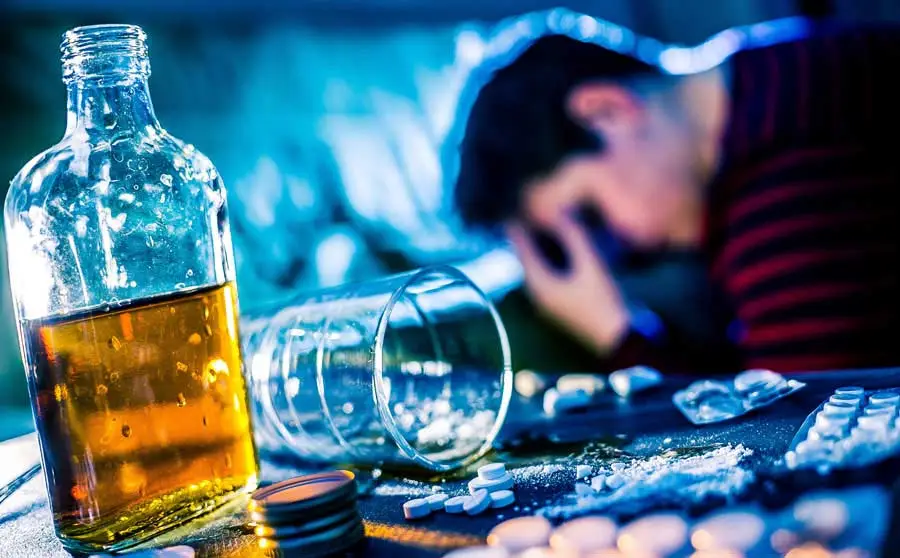What Happens During Alcohol Detox in Hawaii?
If you or someone you love is finding it hard to stop drinking on your own, there’s help available and it often begins with detoxification. What does alcohol detox mean? According to the Substance Abuse and Mental Health Services Administration, it’s a set of interventions designed to manage acute intoxication and withdrawal. During detox, the patient’s body clears out the toxins associated with alcohol. This process sets the stage for rehabilitation and long-term sobriety.
Detox can take a week or more and it comes with a variety of withdrawal symptoms that range from merely uncomfortable to highly dangerous. Common alcohol withdrawal symptoms include excessive sweating, rapid heartbeat, and irritability. However, some people experience even more severe symptoms such as seizures
At Exclusive Hawaii Rehab, we have both medical and naturopathic professionals on staff and they design a personalized detox program for each client.
Who Needs an Alcohol Detox in Hawaii?
You may be wondering if you need to undergo detox as a result of your drinking problems. If you’ve been drinking excessively for a few weeks or longer, you’ll likely need to detox and you should do so under medical supervision. If you’ve become dependent on alcohol, your body needs it to function normally. If you don’t drink for several hours, your body will struggle to maintain equilibrium and you’ll likely experience withdrawal symptoms.
If your dependence is severe or you’ve previously experienced severe alcohol withdrawal symptoms, you’re more likely to need alcohol detox. However, an addiction treatment professional is best placed to determine whether you need detox or not. Before making a recommendation, they may perform physical and mental health examinations and ask questions about your alcohol use and your mental and physical state.
Signs Of Alcohol Use Disorders


An alcohol use disorder is characterized by:
- Being preoccupied with alcohol
- Finding it difficult to control your drinking
- Drinking even when it creates problems
- Trying to quit drinking but finding it impossible to do so
- Having to drink more alcohol to get the same desired effect
- Neglecting social familial or professional responsibilities because of alcohol use
- Drinking when it’s not safe to do so such as when driving or swimming
- Spending excess time drinking, seeking out alcohol, or recovering after drinking
- Experiencing withdrawal symptoms when you abruptly stop drinking
Any alcohol use that jeopardizes your health or safety or causes other problems is considered unhealthy use. This includes binge drinking. If your drinking repeatedly causes significant distress or makes it hard for you to function in daily life, you may have an alcohol use disorder. AUDs can range from mild to severe. However, even a mild disorder can have a negative impact on your life so you should seek treatment as early as possible.
The Importance of Alcohol Detox
Detox is usually the first stage in the continuum of alcohol treatment. You’ll stop drinking and allow your body to flush out all the alcohol. The duration of the withdrawal symptoms will depend on the severity of your condition, but they typically go away within a week or two of starting detox. Once you’ve completed detox, you’ll be able to focus on counseling, various forms of therapy, and other parts of the recovery process.
Some people are understandably reluctant to stop drinking because they’re afraid of the withdrawal symptoms they may experience during detox. Some people experience only mild symptoms but others may be in significant pain and the symptoms can change rapidly. That’s why it’s highly recommended that you detox under the care of medical professionals. In medically supervised detox, you’ll get round-the-clock care and medications to help you manage the worse of your symptoms.
Experience True Healing
Our deeply-caring staff and the surrounding natural beauty offer an unparalleled healing experience.
Common Alcohol Withdrawal Symptoms
When an individual abuses alcohol regularly, the body overcompensates for alcohol’s depressive effects by increasing certain chemicals and hormones. When you quit drinking, your system is thrown out of balance.


Therefore, as you detox from alcohol, you may experience:
- Anxiety
- Depression
- Headache
- Mood swings
- Exhaustion
- Rapid heartbeat
- Problems sleeping
- Changes in appetite
- Sweaty or clammy skin
- Dehydration
- Body tremors or shakiness
- Nightmares
Symptoms of alcohol withdrawal can be life-threatening, especially if individuals don’t get proper treatment. In some cases, detoxing from alcohol can lead to a more severe form of alcohol withdrawal, known as delirium tremens or DTs.
Symptoms of DTs include:
- Hallucinations
- Disturbed mood
- Agitation
- Confusion
- Fever
- Seizure
Alcohol Detox Timeline
Each person will have a different experience during detox. However, there is a general timeline that symptoms tend to follow.
Day 1
If a person is dependent on alcohol, symptoms of alcohol withdrawal tend to kick in with several hours of the last drink. On the first day of detox, individuals may experience shaky hands, restlessness, and an uneasy feeling. Alcohol cravings are also common.
Days 2 to 3
This is when withdrawal symptoms tend to peak with individuals experiencing nausea and vomiting, anxiety, and rapid heartbeat. Some people also experience increased blood pressure, seizures, agitated mood, or hallucinations. Delirium tremens can occur in individuals who drank large amounts every day for several months or years. DTs can occur suddenly and requires medical assistance.
Final Stages
Many individuals begin to stabilize after about a week. Some may continue to notice low moods and alcohol cravings. These symptoms are more likely to linger in people who were dependent on large amounts of alcohol. Psychological symptoms such as anxiety and depression may persist as the body starts to return to normal.
What Are the Stages Of Alcohol Detox?
Addiction treatment facilities typically break down the detoxification process into three key stages: evaluation, stabilization, and preparation for rehabilitation.
Evaluation takes place when the client enters the facility for the first time. Staff will take the time to learn more about the client so they can anticipate and meet their specific needs during detox. Important factors include gender, mental and physical health, and history of relapse.
After the initial evaluation, medical professionals come up with a detox plan to keep the patient’s vital signs stable and keep physical and mental symptoms at a minimum.
As individuals near the end of detox, staff will help them to prepare for the next step. For some people, this will be inpatient treatment but partial hospitalization or some form of outpatient care may be best for some people.
In any case, rehab will likely involve group and/or individual counseling designed to help you get to the root of your addiction and develop healthier ways of thinking and behaving.
Is Quitting Drinking Cold Turkey Dangerous?
You may be wondering if you can just stop drinking and stay at home until the withdrawal symptoms pass. This is highly discouraged since there are several serious at-home alcohol detox risks. Quitting cold turkey is dangerous and you shouldn’t try to deal with painful symptoms on your own.
If you’re asking “can you die from alcohol detox?”. The answer is yes. Severe symptoms can put your life in danger. As many as 20% of individuals who experience DTs die if they don’t get medical help. However, with medical treatment, the amount drops to one percent.
Individuals of advanced age and those with certain health conditions are at a higher risk of developing dangerous complications. These include those with cancer, liver disease, heart conditions, and central nervous system injuries or infections. If you have one of these conditions, it’s imperative that you have medical supervision when you detox.
Experience True Healing
Our deeply-caring staff and the surrounding natural beauty offer an unparalleled healing experience.
What Are the Benefits of a Medical Detox Setting?


While medical supervision can be helpful for people withdrawing from any type of substance, it’s crucial for those dependent on alcohol. Medical detox is aimed at reducing withdrawal symptoms, managing medical issues, and providing physical and emotional support.
When you’re in a facility, doctors will physically examine you and they may check things like your breathing, heart rate, and temperature to determine what your medical needs are. They may also perform toxicology tests to measure your blood alcohol levels or the levels of other drugs in your system.
While you may have privacy when you’re at home, you won’t have professional support. There won’t be anyone qualified to administer medication or offer psychological assistance. If a medical emergency arises, there won’t be anyone to intervene. To give yourself the best possible chance of making it through detox, you should seek professional help. This will allow you to move on to the next stage of recovery.
It is extremely difficult to stop drinking and maintain sobriety without undergoing formal treatment. One study found that more than half of individuals who didn’t receive treatment had relapsed after three years.
Quitting drinking cold turkey without undergoing medical detox puts individuals at risk of relapse. Since withdrawal symptoms can be painful, many people are unable to resist the urge to drink again. Also, post-acute withdrawal is often characterized by anxiety and depression and many people relapse in the early stage of recovery in an attempt to self-medicate.
Medications For Alcohol Detox
When you undergo detox in a medical facility, you may be prescribed medication to reduce pain and discomfort. Medicines may also be used to reduce the risk of severe complications. A medical professional will administer the medication and monitor the effects. If you experience any adverse effects, they can give you something else.
Some of the medications commonly administered during the detox phase are:
- Benzodiazepines – Benzos such as Librium and Valium are used to help calm the central nervous system. They can bring relief from anxiety, insomnia, and muscle spasms.
- Naltrexone – This helps to reduce alcohol cravings. It also blocks the effects of alcohol if the individual drinks since it binds to the endorphin receptors. Since naltrexone can cause nausea and vomiting and stimulate withdrawal symptoms, doctors usually don’t prescribe it until seven to ten days after the individual stops drinking.
- Acamprosate – This drug helps the brain to function normally again after an individual quits using alcohol. It also reduces cravings. Research is ongoing to determine whether it can leave post-acute withdrawal symptoms such as insomnia, restlessness, and anxiety.
- Disulfiram – If patients drink while taking this medication, they will experience several negative side effects including nausea, headache, low blood pressure, facial flushing, and weakness. Disulfiram isn’t designed to reduce cravings or normalize brain function.
Why Choose The Exclusive Hawaii Rehab For Alcohol Detox?
When you attend our luxury rehab facility, we’ll come up with a customized detox protocol that meets your specific needs. Our comprehensive intake and assessment process will give our medical and naturopathic doctors the information they need to properly care for you and keep you safe.
Our medical director will manage your symptoms on a daily basis and doctors and nurses will make sure you’re as comfortable and pain-free as possible. We will adjust your treatment as needed.
One of the unique features of our Hawaii alcohol detox is that we use vitamins, minerals, and herbs to assist with the process. We also include acupuncture since it helps to calm the nervous system and reduce cravings.
Many of the people who come through our doors are worried about the withdrawal symptoms they’ll experience. That’s why we do everything we can to make the detox process as easy and comfortable as possible. If you need to be monitored in a hospital setting, we will transfer you to Hilo Hospital or North Hawaii Community Hospital.
Get in Touch with Our Team Today!
Detox is an important step in overcoming an alcohol use disorder. Given all the dangers posed by withdrawal symptoms, it’s best to have professional supervision throughout the process. If you or someone you love is interested in getting treatment from Exclusive Hawaii Rehab, contact us today to learn more. We’ll gladly answer your questions and even verify your insurance. Call us at (808)775-0200 today!